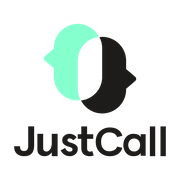Are you in search of the best contact center quality assurance solution? Boost your customer experience by reading our comprehensive buyers guide that will help you with tips on how to find the perfect one.
Are you looking for the best contact center quality assurance software in the market? Do you want to maximize your team's performance and provide exceptional experiences to customers? Investing in a contact center QA software can significantly enhance your operation by identifying areas for improvement and making customer interactions smooth and effortless. With so many options available in the market, it can be overwhelming to choose the right product. This buyer's guide will help you make an informed decision to select the best tool that will transform your customer service operations.
What is contact center quality assurance software?
This is a tool used by businesses to monitor and analyze customer interactions. It is designed to improve the quality of customer service provided by call center representatives, with the ultimate goal of increasing customer satisfaction and loyalty.
The software works by automatically recording phone calls and other interactions between customers and agents. Once recorded, these interactions can be analyzed in detail to evaluate the performance of individual agents, identify areas for improvement and provide coaching and training to enhance the skills of the agents.
Here are some of the common use cases of this essential tool:
- Monitoring agent performance: By listening to recorded interactions, managers can evaluate how well each agent is performing, looking for indications of low customer satisfaction ratings, long call times, or errors made during conversations. According to ContactBabel surveys, 45% of contact centers consider QA very effective in monitoring agent performance and training requirements, with around 40% considering it fairly effective.
- Improving customer service: A contact center quality assurance platform helps identify trends in customer interactions, highlighting common problems that need to be addressed, and can provide suggestions for improving customer interactions.
- Compliance monitoring: Some businesses are required to comply with legal requirements that mandate certain behaviors or prohibit specific language. Quality assurance technology helps ensure that agents are following regulations.
- Customer experience analysis: The feedback collected by a quality assurance program can be used to assess the overall experience of customers, pinpoint areas that need improvement, and develop strategies to meet customer needs better.
This type of system is commonly used by large-scale businesses that receive significant volumes of inbound calls from customers. Telecommunication companies, e-commerce businesses, financial services companies, and healthcare providers are just a few examples of businesses that can benefit from contact center quality assurance software.
Key benefits of using a contact center quality assurance solution
As businesses increasingly prioritize customer satisfaction, contact center quality assurance technology has become increasingly popular for organizations to streamline their customer service process. There are numerous benefits that come with the implementation of this application and here are some of the main ones:
- Improve customer satisfaction: One of the primary reasons to implement such a program is to enhance customer satisfaction. The system ensures that customers consistently receive the highest quality service from agents. This leads to increased loyalty and improved customer retention rates.
- Increased efficiency: It optimizes the entire quality assurance process, freeing up agents to focus on customer service. This leads to increased efficiency in the contact center, resulting in faster resolution times and fewer errors.
- Trained agents: It also enables a more effective training process. Managers can analyze interactions between customers and agents and provide feedback to improve agent performance. This helps agents to gain a better understanding of how to assist customers effectively.
- Accurate and thorough evaluations: The QA tool ensures that every interaction between agents and customers is evaluated consistently and objectively. This eliminates the risk of errors and ensures that all agents are held to the same standard.
10 key features of contact center quality assurance software
QA software for contact center comes with a wide range of features that make it an asset to any business. Here are its 10 common features that can help you achieve your customer service goals:
1. Call recording:
It allows businesses to record customer-agent interactions to identify areas of improvement and coaching opportunities.
2. Screen capture:
It also captures on-screen customer interactions, helping businesses identify areas that may require further training or improvement.
3. Quality management:
The solution offers a suite of tools for businesses to effectively monitor and evaluate their call center agents' performance.
4. Speech analytics:
It automatically analyzes customer interactions to identify trends, issues, and opportunities for improvement.
5. Coaching and training:
Managers are able to provide targeted feedback and coaching to individual agents and create customized training programs.
6. Reporting and analytics:
It offers arobust suite of reporting tools that offer valuable insights into agent performance, customer satisfaction, and call center effectiveness.
7. Call monitoring:
A contact center software allows supervisors to listen in on customer-agent interactions in real-time, providing immediate feedback and coaching opportunities.
8. Workforce management:
It enables businesses to optimize their staffing levels, improving efficiency and reducing wait times.
9. Call scoring:
It comes with a standardized scoring system used to rate the effectiveness of customer interactions, offering key insights for coaching and training.
10. Integration with CRM systems:
It allows businesses to integrate their quality assurance software with their other customer relationship management systems, streamlining processes, and boosting efficiency.
Key considerations when adopting a contact center QA tool
Selecting the right contact center QA system is crucial for any business with a contact center. Here are some key factors that businesses should consider when making a purchase decision:
1. Ease of use:
The tool should be intuitive and easy for agents, supervisors, and administrators to use. Look for a solution that offers robust features and functionality but is still easy to navigate.
2. Integration with other systems:
A quality assurance solution should be able to integrate with other systems, such as CRM or workforce management software, to streamline processes and enhance the overall customer experience.
3. Customization options:
Every business has unique needs, so it's important to choose a QA platform that allows for customization and flexibility. This will help to ensure that the program is tailored to meet your specific requirements and workflows. With 62% of contact centers planning to implement cloud technology, your QA software will need to be up to the challenge presented by the shift in working patterns and needs to be able to provide the same flexibility and user experience as in previous years.
4. Analytics and reporting:
Data is essential to making informed decisions, so it's important to select a tool that provides detailed analytics and reporting. Look for solutions that offer real-time reporting and historical data analysis to help you make data-driven decisions.
5. Scalability:
Your business may grow over time, so it's important to select a QA program that can scale with your organization. Choose a vendor that offers solutions for businesses of all sizes.
6. Security:
Contact centers deal with sensitive customer information, so security is a top priority. Choose a contact center platform vendor that prioritizes security and compliance, with measures in place to protect data and ensure compliance with relevant regulations.
7. Quality assurance processes:
The product should be designed to support a range of quality assurance processes, from call monitoring and coaching to evaluating customer interactions. It should also offer tools to help you identify trends and areas for improvement.
Trends for contact center quality assurance software
As technology continues to evolve, new trends will shape the future of contact center quality assurance software tools . Here are some of the biggest trends to watch out for:
- AI-powered analytics: Artificial intelligence is set to revolutionize contact center quality assurance tools. AI-powered analytics can analyze vast amounts of data in real-time, providing actionable insights that can help contact centers optimize their operations.
- Cloud-based solutions: With the increasing demand for scalability, flexibility and accessibility, contact centers are turning to cloud-based quality assurance software solutions. Cloud-based solutions offer a cost-effective alternative to traditional on-premises applications, with lower upfront costs and superior flexibility.
- Mobile applications: With a growing number of consumers using their mobile devices to interact with businesses, contact centers are looking to facilitate this interaction by providing mobile applications for QA solutions. This will create a seamless and integrated experience for customers, improving overall customer satisfaction.
- Agent scorecards: Agent scorecards have become a popular way to measure agent performance in contact centers. By providing agents with real-time feedback and metrics, they are able to make necessary adjustments to improve customer interactions.
- Speech analytics: Speech analytics monitors voice interactions for keywords, tone, and sentiment. With speech analytics, contact centers are able to identify customer trends, provide targeted coaching to agents, and improve customer experience.
By adopting these trends and implementing cutting-edge technology, organizations can continue to enhance their customer experience and maintain effective contact center operations.
Conclusion
To summarize, implementing a robust contact center solution is essential for maintaining high standards of customer service and operational efficiency. It provides invaluable insights that enable continuous improvement, fostering a culture of excellence within the contact center. This approach not only ensures a balanced and motivated workforce but also recognizes and rewards high-performing agents. Moreover, advanced features in this technology deliver deeper insights into customer interactions, empowering managers to make informed decisions swiftly.








